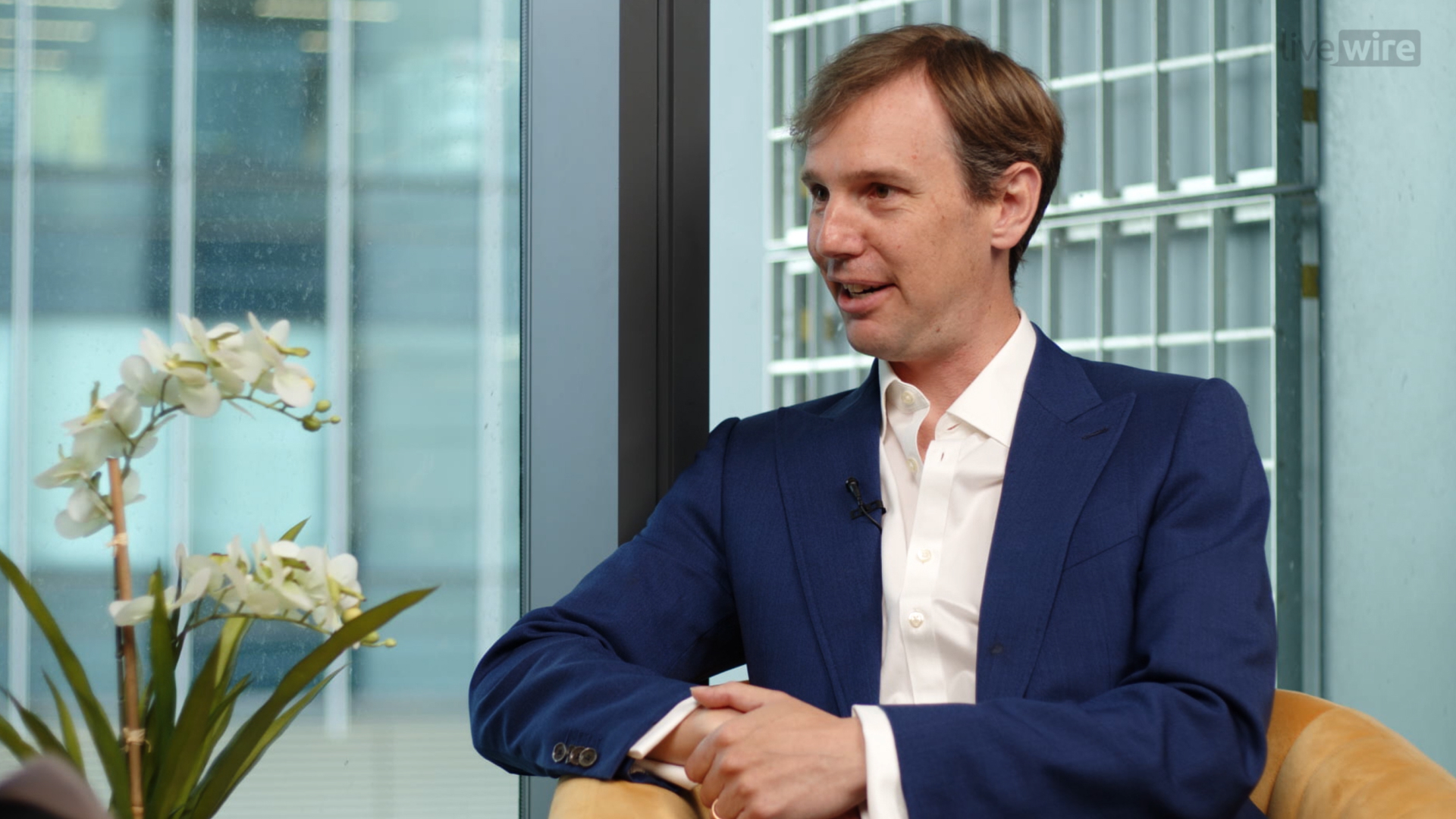The hunt for the "great change stories" in global equities
Please note this Interview was filmed Monday 27th October 2025.
When it comes to global equities, small and mid-caps don’t often get the attention they deserve, with the mega caps crowding the headlines.
But under the surface are what James Rodda, portfolio manager at Antipodes, calls “the great change stories”.
Antipodes has built its reputation as a global equity firm on what Rodda calls a “pragmatic value” approach, combining valuation discipline with a deep understanding of change. The firm launched its Global SMIDs strategy, led by Rodda, in 2022 to complement its existing award-winning long only and long short global equities funds.
Change is a word that comes up several times during our conversation - for Rodda and his team, it’s not just stock picking, but studying what’s changing across sectors.
“We invest across the growth continuum, but we’re really pragmatic and valuation-focused on what we pay,” Rodda says. “When we get it right, that focus on change gives us more ways to win, less ways to lose, and better risk-adjusted outcomes for investors.”
I sat down with Rodda to discuss why he thinks it is a section of the market that is both underappreciated and underowned.

INTERVIEW SUMMARY
The case for global SMIDs
“Traditionally, there’s been a small-cap premium in markets that existed consistently until about 2018,” Rodda explains. “Since then, we’ve seen a large divergence in multiples to the point now where small and mid-caps (SMIDs) probably need to appreciate by around 50% to trade at the same multiples as large caps.”
Despite that valuation gap, the long-term growth difference between SMIDs and large caps isn’t as stark as the market seems to think.
“On a 10-year basis, growth has lagged by only about 1.5%, but the market’s extrapolating that difference. So you’re looking at an area that’s trading at long-term averages - meaning you could expect similar long-run returns without any multiple re-rate.”
Rodda also points out that investors are structurally underweight this part of the market, often due to access challenges - one of the reasons Antipodes is launching its Antipodes Global SMID Fund as an active ETF under the ticker name, MIDS.
“Change stories” and where to find them
At the heart of the Antipodes process is industry research, backed by a 30-strong investment team.
“We’re looking for great change stories,” Rodda says. “That might be structural, cyclical or political change - and it’s about finding underappreciated shifts wherever they occur.”
That might mean sometimes backing cyclical recoveries, but Rodda says it’s equally about spotting less obvious structural shifts. He gives aged care as an example.
“In real estate, for example, data centres are well understood. But aged care is something that’s really exciting. The baby boomers’ first cohorts hit 80 this year, there’s mid to high single-digit industry growth, and we can buy properties well below replacement cost. Profitability needs to improve to stimulate supply, but that’s a COVID hangover that will normalise.”
Inside the portfolio
I asked Rodda for examples of current holdings in the fund that illustrate Antipodes’ approach to identifying and capitalising on change as we head into 2026.
The first is International Workplace Group (LON: IWG), a flexible office provider often compared to WeWork.
“Historically, it’s been a disappointing stock - high capital, low return. But since COVID, landlords are highly incentivised to improve utilisation. IWG has pivoted to a model more like Hilton or Marriott, where landlords fund the fitout and IWG earns a share of revenue. It’s transforming from a high-capex, low-return business to a low-capex, high-return one.”
That pivot has created a backlog of thousands of contracted spaces and strong earnings visibility.
“If we look at 2028, it’s on six or seven times earnings, still growing at 20%. It’s a really good opportunity to make excellent returns.”
The second example, GCC Cement (BMV: GCC), a Mexican-listed company with three-quarters of its business in the United States, plays into the U.S. onshoring and infrastructure story.
“It’s located in the growth corridors of the U.S., not subject to import competition, and has one of the only new plants in the nation coming online next year,” Rodda says. “Once that CapEx slows, it’ll be trading on a 13–14% free cash flow yield versus 4–5% for larger U.S. peers, often with lower-quality portfolios.”
Managing volatility and risk
Small and mid-caps come with more volatility, bouncing up and down as much as 20% sometimes for no good reason. As such, Rodda says, they are very active and for Antipodes, the space has proven to generate good alpha.
“We run a 60-stock portfolio, which spreads volatility and gives you a smoother ride,” he explains. “We’re very active. When a stock rises and the expected return falls, we’ll trim or exit. When it falls for no good reason, we’ll add.”
He also believes Antipodes’ deep industry research offers another layer of protection.
“If you’re going to invest in a small retailer, you need to know what Amazon is doing....That industry-level research reduces risk because we’re less likely to get run over by bigger players. And when we look at the outcomes, the down market capture in the fund is under 50% of the benchmarks."
Broader universe. Greater opportunity.
The award-winning Antipodes Global SMID Active ETF (ASX: MIDS) takes a differentiated, industry-led research investment approach. They are hunting for the best opportunities across industries and regions, building a portfolio designed to capture upside while protecting the downside. Learn more by visiting the Antipodes website.
1 topic
1 stock mentioned
1 contributor mentioned
.jpg)
.jpg)